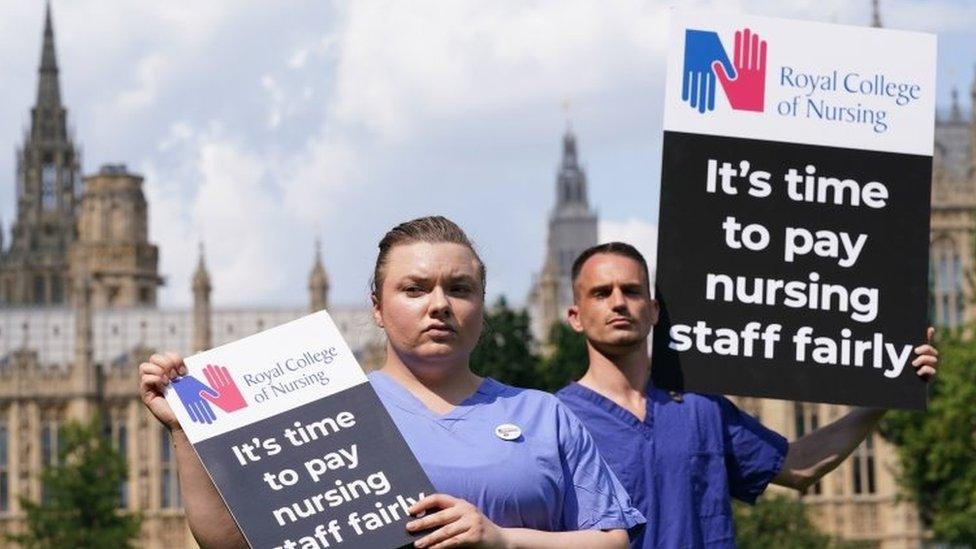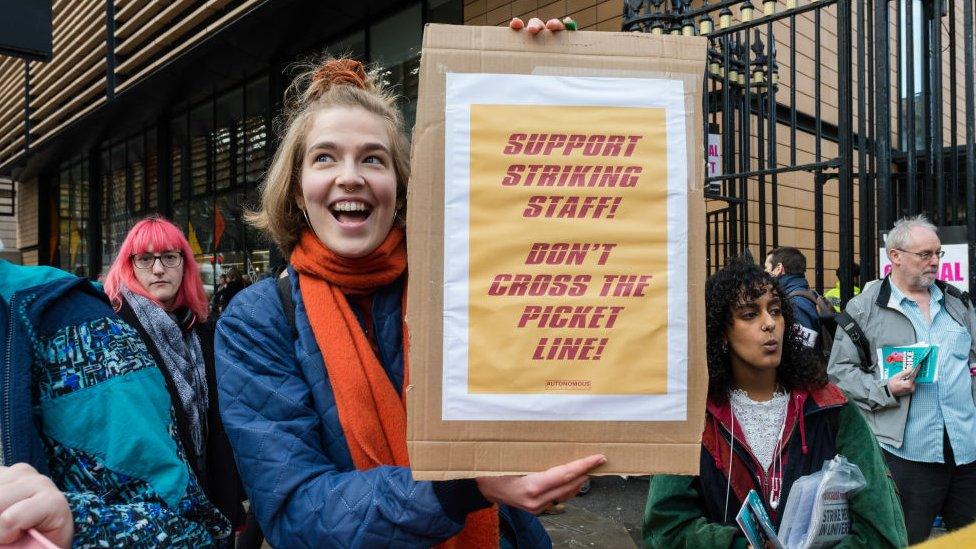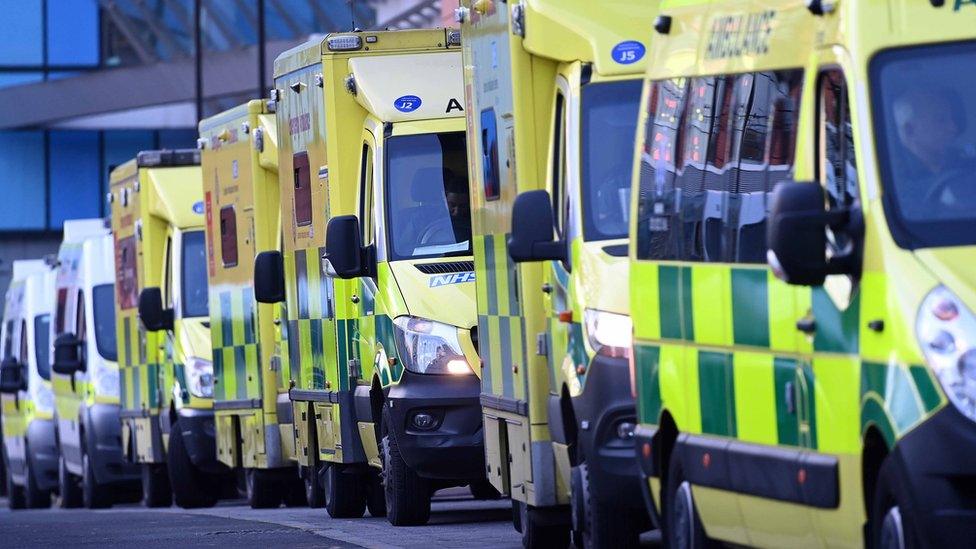Strikes Update: How Monday 13 March junior doctors' strike affects you
- Published

Thousands of junior doctors in England have started a three-day strike over pay and conditions.
The action poses a problem for NHS leaders: junior doctors make up 45% of the medical workforce, two-thirds of them are members of the BMA union which is organising the strike, and they're planning on walking out of emergency as well as planned care.
The action is expected to affect every region in England.
Consultants and other senior doctors are being drafted in to provide cover. Lots of planned appointments are set be postponed - but it's not yet clear how many.
Junior doctors say they have no choice but to take this action which, they say, is as much about feeling undervalued and overworked as it is about pay.
You can read more or watch this report about why people are taking strike action, and below you can find information on how it could affect you.
More than 36,000 junior doctors are set to strike from Monday until Thursday morning in England.
Consultants will be brought in to provide some cover, but the NHS is warning of "major disruption and thousands of patients may face postponements to their treatment" due to the strike.
The NHS advice, external is to dial 999 in an emergency and turn up to hospital appointments unless you are told otherwise.
Other things to note are:
Emergency care will continue to be available.
People needing critical care, newborn baby care, and trauma care will be prioritised.
Anyone needing urgent care should dial 111.
GP services will not be directly affected by the strike, so people should keep GP appointments.
Some hospital dentists will also be on strike.

What do doctors want?
Junior doctors in England want a pay rise of 35%.
The British Medical Association (BMA) calls it pay restoration after cuts of 26% once inflation is taken into account since 2008.
The 35% rise is needed to make up for the 26% cut, it says.
What impact will the strikes have?
Junior doctors represent around 45% of the medical workforce in England.
They include those just out of university through to doctors with 10 years of experience so the strike action will have a major impact.
About two-thirds of the junior doctor workforce are BMA members.
They are walking out of both emergency and planned care as well as general practice where some junior doctors will be working as GP trainees.
It means NHS bosses are drafting in consultants and other senior doctors to cover them in emergency care, such as A&E and intensive care.
This will lead to the postponing of lots of planned treatment, such as knee and hip replacements.
Are the two sides talking?
Junior doctor leaders at the BMA have had meetings with ministers and government officials in recent weeks.
But the government says it will not hold formal pay negotiations unless strikes are paused, and the BMA has declined.
Ministers have made it clear they are not willing to meet the pay demands of junior doctors, but do want to "find a fair settlement".
Instead, the government is concentrating on reaching a deal with the 14 health unions representing NHS staff other than doctors after they suspended their strike action.
Talks were held last week with unions representing everyone from nurses and midwives to ambulance staff and physios.
They have involved discussions about effectively offering staff a bonus for this year on top of a 4.75% pay rise and a more generous increase from April for the 2023-24 year - the government has suggested 3.5%, but unions have made it clear they want more.
Follow Zoe Conway on Twitter, external
Additional reporting by Nick Triggle and Tom Espiner


How are you affected by the strikes? Are you taking part in strike action? You can email: haveyoursay@bbc.co.uk, external.
Please include a contact number if you are willing to speak to a BBC journalist. You can also get in touch in the following ways:
WhatsApp: +44 7756 165803, external
Tweet: @BBC_HaveYourSay, external
Or fill out the form below
Please read our terms & conditions and privacy policy
If you are reading this page and can't see the form you will need to visit the mobile version of the BBC website to submit your question or comment or you can email us at HaveYourSay@bbc.co.uk, external. Please include your name, age and location with any submission.
Related topics
- Published2 May 2023

- Published20 October 2023

- Published31 January 2023
